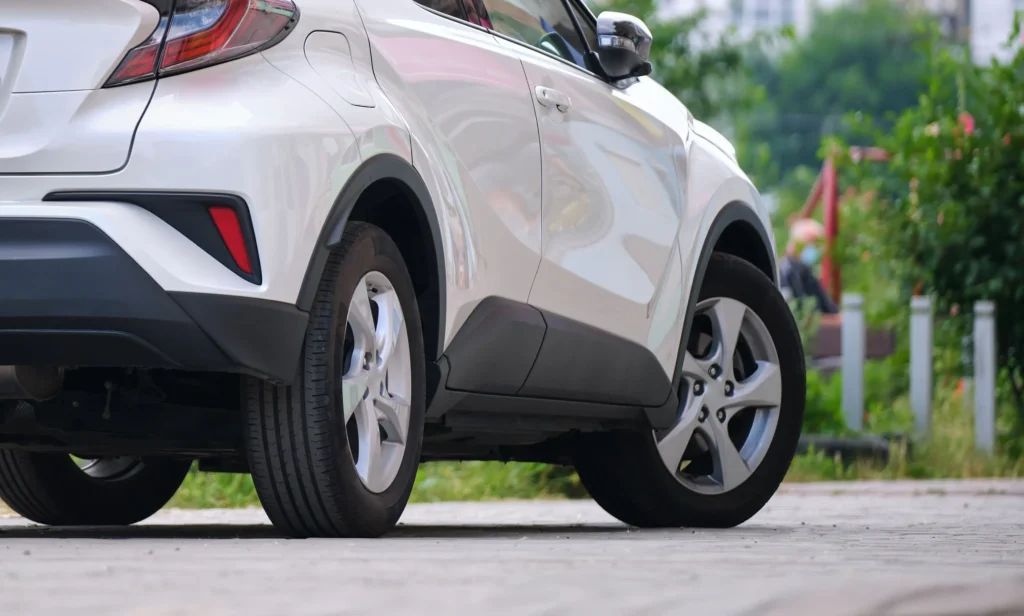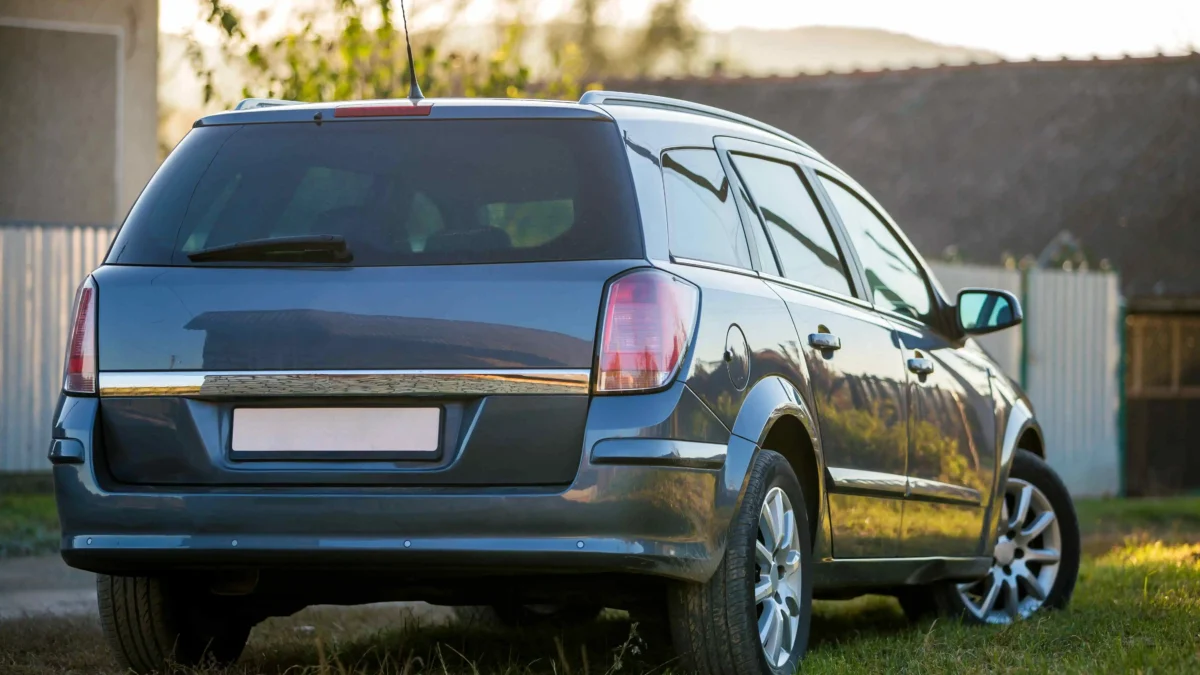
Top 5 Tips to Sell Your Old Truck
June 22, 2023
What is Frame Damage on a Car?
August 10, 2023Before putting your vehicle up for sale, it is essential to understand its true value clearly. Carrying out your used car’s valuation may seem daunting, but it is crucial for a successful transaction.
Setting the right price is critical because pricing your vehicle too low will result in potential profit loss. Opportunistic buyers may take advantage of the low price without disclosing that they would have been willing to pay more.
On the other hand, if you price your car too high, it becomes exceedingly difficult to find a buyer. In fact, selling your car in a timely manner can become nearly impossible. However, when you accurately determine the value of your used car, these issues can be avoided altogether.
You can maximize your profit without enduring months of waiting for a sale to materialize. By pricing your vehicle correctly, you strike the perfect balance that ensures a fair deal and a reasonable timeline for selling.
What is Used Car Valuation?

Used car valuation, as the term suggests, refers to the assessment and determination of the worth of a used vehicle. It is a multidimensional process that considers multiple factors to estimate a car’s market value accurately.
These factors can include the car’s make, model, year of manufacture, mileage, maintenance history, current condition, market demand, and even prevailing economic conditions. Through this valuation, potential buyers and sellers can gain insights into the appropriate price range for a specific used car.
What are the Advantages of Used Car Valuation
Used car valuation offers numerous advantages for buyers and sellers in the automotive market. Let’s explore some of the key benefits:
Informed Decision-Making
Used car valuation empowers buyers and sellers by providing valuable information. Buyers can make informed decisions based on the estimated value, allowing them to prioritize preferences and limited options within their budget. Sellers can accurately assess the market value and set competitive prices to attract potential buyers.
Negotiation Power
Accurate used car valuation gives buyers an advantage in negotiations. With knowledge of the vehicle’s value, they can negotiate confidently, presenting the valuation as evidence and countering inflated prices. Sellers can also use the valuation to justify their asking price, negotiating from a position of credibility. It empowers both parties to reach a mutually beneficial agreement.
Avoiding Overpayment
Used car valuation prevents buyers from overpaying. It is a benchmark to evaluate if the asking price aligns with the actual worth. By comparing the valuation to the seller’s price, buyers can identify discrepancies and negotiate wisely, ensuring they don’t pay more than the vehicle’s actual value.
Setting a Fair Selling Price
For sellers to establish a fair and competitive selling price, used car valuation is crucial. It eliminates guesswork and subjective opinions by objectively assessing the vehicle’s value.
Factors such as the condition, mileage, age, and market demand can be considered by sellers to determine an accurate valuation allowing them to price their vehicle appropriately. This also increases the likelihood of attracting potential buyers and expediting the sale process.
Maximize Return on Investment
By utilizing a reliable valuation of a used car, sellers can optimize their return on investment. Undervaluing the car may lead to missed opportunities for a higher selling price, while overvaluing it can deter potential buyers and prolong the selling process. Setting an accurate price based on valuation allows sellers to strike a balance that ensures a fair deal and maximizes their financial return.
Objective Assessment
The value of a used car is determined objectively based on characteristics such as its condition, mileage, age, and market demand. It removes subjectivity and biases that can develop during discussions, ensuring a fair assessment.
Trust and Transparency
Used car valuation increases transparency and trust throughout the buying and selling processes. It alleviates concerns and uncertainties by providing a reliable and impartial assessment of a vehicle’s value. Both buyers and sellers can rely on the valuation as a trustworthy source of information, promoting openness and cultivating a sense of confidence among all involved parties.
Time and Cost Savings
By fully understanding a vehicle’s value, used car appraisal can save time and money. Sellers may avoid undervaluing their vehicles and optimize their return on investment, while buyers should avoid paying too much for a car that may not be worth the asking price.
What are the Disadvantages of Used Car Valuation?
Variability in Valuations
Different valuation techniques or procedures may produce different outcomes, resulting in disparities in estimated values. It can cause confusion for buyers and sellers who receive different appraisals from multiple sources, making determining the genuine value of a car difficult.
Market Fluctuations
Market swings affect valuations. A vehicle’s value can fluctuate over time due to a variety of factors, such as demand, supply, economic conditions, and industry trends. It means that a valuation obtained today may not precisely reflect future value.
Limited Scope
The value of a used car is determined by objective characteristics such as condition, mileage, and age. It may not take into account subjective aspects such as sentimental worth, unique qualities, or personal preferences that are essential to purchasers or sellers. This limitation can have an impact on a vehicle’s perceived value.
Dependency on Data Accuracy
The correctness of a valuation is dependent on the information provided. If erroneous or partial data is entered, the valuation may be distorted, resulting in an inaccurate estimate of the value of a car.
Key Factors to Consider for Getting the Best Deal

To receive an accurate estimate using a car value calculator, you will need to provide specific details about your vehicle. The more comprehensive the questions asked, the more precise your appraisal will be.
Thus, being honest and accurate when answering these questions is essential. Here is the information typically required to obtain an estimate of your car’s value:
Model Year
You must disclose your vehicle’s make, model, and year. Additionally, most valuation tools may ask for details such as the car’s color, interior, and trim. If you are uncertain about this information, refer to the owner’s handbook for assistance.
Features
Certain features and equipment can influence the value of your car. The used car valuation tool will inquire about any distinctive features or customized equipment to provide an accurate estimate. Examples may include heated steering wheels, leather seats, a premium sound system, or unique rims.
Mileage and Fuel Efficiency
Mileage plays a significant role in determining the resale value of a used car. The more miles a vehicle has been driven, the lower its value. You can choose the mileage of your car by checking the odometer on the dashboard.
Car Condition
The condition of your vehicle is another crucial factor in its valuation. Some tools may ask you to assess the state of your car using categories such as good or average. It is important to be truthful when describing the condition of your car to avoid overestimating its value. Take the time to review the provided descriptions for each category before selecting the most appropriate one.
Conclusion
Used car valuation is essential in the automotive sector since it benefits buyers and sellers. Individuals may make educated decisions and participate in fair transactions if they understand the process and take important elements into account, such as car condition, mileage, market demand, age, and maintenance history.
While valuation provides benefits such as transparency and bargaining strength, it also has drawbacks owing to variability and market volatility. Individuals can successfully traverse the used automobile market and enhance their outcomes by adopting car value as a beneficial tool.
If you are looking to get an accurate used car valuation for your vehicle, you can get in touch with 1888PayCashForCars. We can offer top prices for your used cars and take a second-hand vehicle off your hands in a hassle-free manner. Contact us today and get your quote at 1888PayCashForCars!




